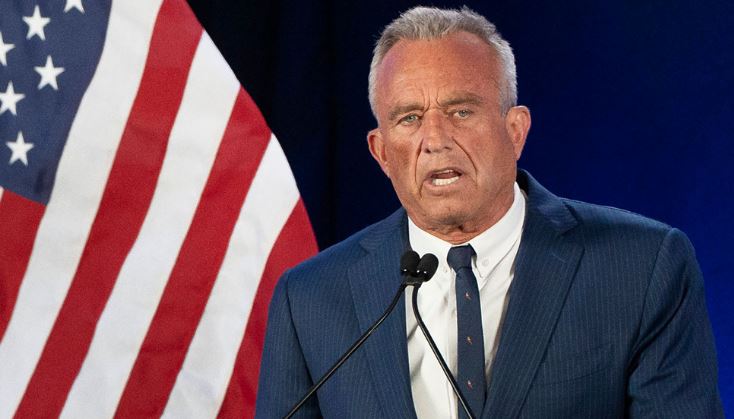From “thepeoplesvoice.tv”
Health and Human Services Secretary Robert F. Kennedy Jr. has ordered sweeping reforms to U.S. medical education: all doctors must be trained in nutrition and prevention, from pre-med through residency and board certification. Big Pharma stocks tumbled following the news, as investors expect profits to diminish in the “pill-for-every-ill” system.
The announcement, part of Kennedy’s “Make America Healthy Again” (MAHA) initiative, has been hailed as common sense by health freedom advocates, while pharmaceutical industry insiders are already voicing outrage, calling it a direct threat to their profits.
“Doctors graduate knowing how to prescribe drugs but not how to prevent disease,” Kennedy said. “That ends now. If medical schools want federal funding, they must teach nutrition.”
According to data from the National Academy of Sciences, fewer than 14 percent of U.S. residency programs require any formal training in nutrition, and most medical students receive less than two hours of nutrition education in their entire schooling. Kennedy’s plan would change that by embedding prevention-focused coursework into licensing exams, continuing education, and hospital training programs.
Alt-health advocates say this shift could finally bring legitimacy to what they have known for decades: that food and lifestyle choices are the foundation of health, not endless prescriptions.
Big Pharma’s Panic
The pharmaceutical lobby is reportedly alarmed at the move. With diet-related chronic disease fueling much of the industry’s revenue stream, widespread education in prevention could cut deeply into the demand for lifelong medications.
Financial analysts have already noted jitters in the biotech and pharmaceutical markets following Kennedy’s announcement. Some investors fear a “food-as-medicine revolution” could disrupt entire business models built on treating, not curing, disease.
For Kennedy and his supporters, this is not about politics but about reclaiming health. His MAHA program emphasizes whole foods, physical activity, and lifestyle changes as the first line of defense against heart disease, diabetes, and cancer—conditions often linked to processed food and pharmaceutical over-reliance.
“This is about prevention, not profit,” Kennedy said. “Americans deserve doctors who know more than just what pill to prescribe. They deserve doctors who understand how to keep them healthy in the first place.”
Medical schools and licensing bodies have until early September to submit plans showing how they will integrate nutrition and prevention into their curricula. Programs that fail to comply could lose federal funding.
For health freedom advocates, this is being celebrated as a landmark shift away from what critics call a “pill-for-every-ill” system dominated by Big Pharma.
